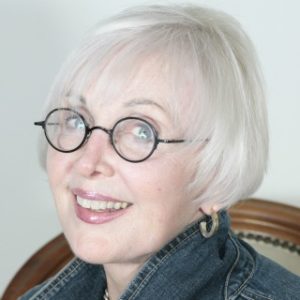It is never too late to revive a dream
When I applied for a job as a writer for Good Housekeeping (Hearst Corporation) in New York in 1961, I was required to take a typing test. I was piqued because I wasn’t applying for the typing-pool, I was applying for a post as an editorial assistant.
I was told, ‘No typing test, no interview.’ I took the test and was offered a job in the ranks of those who could do 70-in-a-minute. I had to insist upon the interview I had been promised. I was only 20 and had no real skills in assertiveness. I am amazed I had the wherewithal to insist on anything.
It never occurred to me that this typing requirement was one that applied only to women, much less that I should be angry for the sake of my entire gender. Prejudice is sometimes like traveling on well-worn treads; you have no idea you’re in danger. It also feeds on the ignorance of its victims. They benignly accept their lot because they know no better.
I had always wanted to sit in a forest or an office or a newsroom with a pencil in my hand. I dreamed writing, lived writing and loved writing. I wanted to write the next Gone With The Wind only set in Utah instead of the South. (I figured enough had been written about the South and hardly anyone knew anything about the unique culture I was raised in.) That was my plan but it was soon ‘gone with the wind.’
‘You can’t be a nurse,’ my mother said. ‘Your ankles aren’t sturdy enough.’ I also was told I couldn’t be a doctor because that wasn’t a woman’s vocation.
‘Be a teacher because you can be home the same hours as your children, but learn to type because every woman should be able to make a living somehow if their husband dies.’
Writing was not a consideration. It didn’t fit any of the requirements. So when I gave it up, it didn’t feel like I was giving up much.
When I began to put myself through college, I took the sound advice and studied education so I’d have a profession.
My dream was a victim of the status quo. It never occurred to me to just strike out in my own direction when my husband and children needed me. The pain was there. I just didn’t recognize it so I could hardly address it and fix it.
I knew I not only would be able to write, I would need to write.
What made you decide to finally realize your lifelong dream?
I read that, if those who live until they are 50 in these times may very likely see their hundredth year. That meant that I might have another entire lifetime before me—plenty of time to do whatever I wanted. In fact, it’s my belief that women in their 50s might have more time for their second life because they won’t have to spend the first twenty years preparing for adulthood.
One day I sat down and began to write the ‘Great Utah Novel.’ I thought it would be a lot easier than it was. I had majored in English Lit. Writing a novel should be pretty much second nature.
What were the specific obstacles you faced?
It wasn’t long before I realized that writing a novel wasn’t as easy as writing the news stories I had written as a young woman. There were certain skills I didn’t have. It was a discouraging time. I might not have to learn speech and motor skills and the ABCs, but there sure was a lot I didn’t know about creative writing.
Somewhere after writing about 400 pages (easily a year’s work), I knew something major was wrong.
What helped you get through them?
I took classes at UCLA in writing. I attended writers’ conferences. I read up on marketing. I updated computer skills that had been honed in the days of the Apple II. And all the while I wrote and revised and listened and revised again. This Is the Place finally emerged.
Much of what I wrote about is my own story. If my novel were a tapestry, the warp would be real but the woof would be the stuff of imagination—real fiction.
I think I bring a unique vision to my work. Utah has a beauty and wonder of its own. The Mormons are a mystery to many. I think I tell a story about Utah in the 50s that could only be told by someone who lived in that time and place and who was a part of the two cultures—the Mormon and the non-Mormon—that make it a whole.
How did you feel when you finally accomplished your lifelong dream?
I am proud that I did wrote this book. I’m glad that I waited until I was 60. I believe that 40 years brought insight to the story in terms of the obstacles that women faced in those days and a gentler perspective of the culture in Utah.
I also really like being proof that a new life can start late—or that it is never too late to revive a dream.
To read more about Carolyn, click here.

















No comments yet.